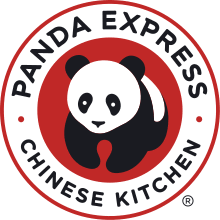Franchising vs Licensing: Which Model Suits You?
Confused about franchising and licensing? Discover the differences between franchise opportunities and licensed business opportunities. Jack Fendo from Vetted Biz explains the distinctions, examples, and what to consider when exploring these business models.
Table of Contents:
Introduction
If you’re confused about franchising, licensing, and business opportunities, you’re not alone. When I entered this industry 18 years ago, I faced similar confusion. In today’s video, I’m here to fast-track your learning curve. We’ll explore the differences between a franchise opportunity and a licensed business opportunity, and what sets licensing apart from franchising.
About Franchising
Franchising is a specific type of licensing that is more defined, particularly by laws in the US. In a franchise system, there is a franchisor and a franchisee:
- Franchisor: Owns a successful business model and grants rights to the brand, products, services, intellectual property, and training.
- Franchisee: Opens a branch under the original brand’s name, duplicating the established business model.
Franchises are regulated by the Federal Trade Commission (FTC) and must comply with specific state laws related to franchising.
About Licensing
Licensing is a more limited legal relationship where:
- Licensor: Grants specific rights to the licensee to use registered trademarks of the brand.
- Licensee: Pays an agreed-upon fee (royalty or licensing fee) to use the trademarks.
Unlike franchising, licensing agreements are focused on trademark use and do not involve comprehensive support or business duplication. This makes licensing less restrictive compared to franchising.
License Examples
Two well-known brands that use licensing are:
- Disney: Licenses their characters and trademarks widely.
- Starbucks: Has license operations rather than franchising in the US.
Other examples include Panda Express and Chick-Fil-A, which license their restaurant concepts in non-traditional outlets, like airports and college campuses. These locations are often licensed rather than franchised.
License & Franchise Agreement
- License Agreements Typically cover registered trademarks only, are less restrictive, and are shorter—usually 20-30 pages.
- Franchise Agreements Encompass trademarks, additional IP, products, services, operating manuals, and more. These agreements are more extensive, often exceeding 200-300 pages.
Franchising provides more transparency in profitability and overall business operations compared to licensing, which generally requires more due diligence due to limited available information.
Licensing in the US
Licensing and franchising are legal distinctions suitable for different business scenarios, depending on where you operate—inside or outside the US.
About Vetted Biz
If you’re considering franchising, Vetted Biz offers a directory of over 7,000 franchises, including:
- 3,000+ brands actively seeking franchisees.
- 4,000 brands with existing franchises for sale but not currently expanding.




